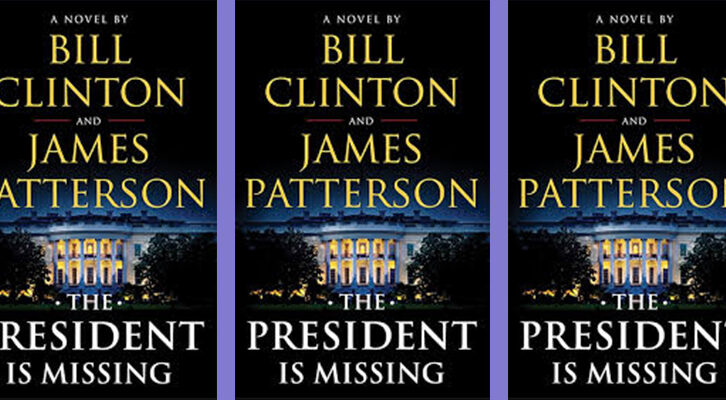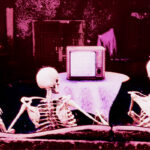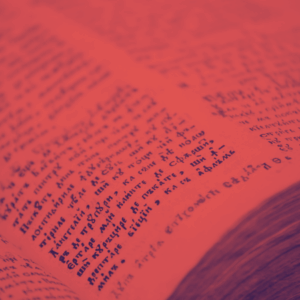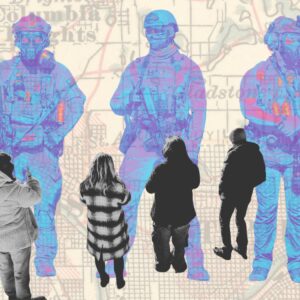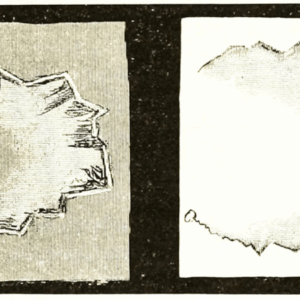
Finding Unexpected Faith in the Neo-Natal Intensive Care Unit
Elizabeth L. Silver on on the Kindness of Strangers
There is a mystical belief that when at least forty women bake challah, the traditional Jewish bread for Shabbat, with specific prayers for recovery for one person, there is a segulah, or a good omen that God will hear them and help. My sister-in-law, Yael, told me about this tradition while my infant daughter, Abby, was in the NICCU following seizures. My husband and I had been beside her bed for nearly two weeks, waiting to take her home and live our lives—whatever they looked like following this stroke, as it would come to be known. Yael, however, had been in continual communication with her rabbi during Abby’s hospitalization, and at his suggestion, she wants to host a challah bake for Abby.
“Invite all your friends,” she told us. “Or give me a list and I’ll invite them.”
Amir and I had never heard of such a custom, and didn’t feel comfortable inviting people to my in-laws’ home for a mystical, mysterious, religious event of which we knew nothing, wherein women who probably didn’t even know Abby would knead dough for hours in prayer for her recovery.
How bizarre it would be for strangers to be thinking of her. How confusing for us to permit or even encourage people to say prayers in her name when we were not doing the same. Perhaps what concerned me more about the challah bake was the genderization of it all. It is about baking, a stereotypically traditional woman’s role. Perhaps if men were permitted to knead dough, too, it might have changed my perspective; but even then, I’m sure I would still be skeptical.
Several days earlier, when Yael couldn’t send flowers to Abby’s room due to NICCU policy, she sent her rabbi instead. Her Chassidic, Orthodox rabbi, whom I had met only once before, is our first visitor. This man, with whom we had very little connection—spiritual, personal, or otherwise—left his family and came to the hospital to . . . well, for what we weren’t quite sure. Comfort was an option, though it’s difficult for me to feel comforted by someone I don’t know. Create a space for us to process recent events by waxing philosophical about the precariousness of life? Serve as someone to confide in as if we were hiding something and needed to confess before it’s too late? Platitudes were far from our needs.
Before visiting hours ended, though, the rabbi handed us gifts and prayer books and a small laminated prayer for the sick, asking us to place it in Abby’s crib. On one side was a photograph of an aging rabbi, traditional in his observant garb. We are not Orthodox Jews. We are cultural Jews. We keep a kosher home but eat what we like on the outside. We go to synagogue occasionally, but still want to send Abby to Jewish preschool. Heritage is important, cultural affiliation vital, as it represents a connection to our past. Jewish community and tradition defines so much of my identity, but a precise focus on God is far less present. I don’t think about religion while in the hospital. I never make deals with God.
Amir and I looked at the baseball card nervously.
“What do we do with this?” Amir asked me once the rabbi left.
I shrugged. “I don’t know.”
I’m not comfortable assigning one individual so much power.
He shrugged, too.
“I don’t know, either.”
We walked back to Abby’s room with the prayer book and the card dangling from my fingers off a metal chain. Neither of us wanted to display it. It didn’t represent our ideals, particularly if praying in this precise way as supposed to bring forth some sort of a miracle.
The word “miracle” disarms me. It assumes that actions taken by human beings are moot, that extraordinary things can’t happen from the hand of a friend, a sibling, a parent, a teacher, a doctor, a nurse. Though it is hard to fully deflect the unknowable power of miracles, and even I sometimes refer to them haphazardly in my everyday speech, I still prefer to believe that if my outcome is good or bad, it is so because of an aggregation of life. Selecting miraculous hope for this one individual would make it true for everyone else on the ward, and I knew that this can’t be true. We weren’t making deals with God. We didn’t blame God or ask God to heal our child, but at the same time, we couldn’t dispose of the card. There was Hebrew writing on it. A rabbi gave it to us. The karmic inference would be less than ideal. The tiny percentage that I’d be flicking away a speck of goodwill would be the particle of doubt I would hold on to if something went wrong.
We both agreed to place it in her crib, along with the stuffed animal and Get Well Soon card from my nieces and my sister, Arielle.
“Far be it from me to stomp on good wishes,” I said.
“It’s a good faith gesture that she’ll heal,” Amir said.
Right, we both thought.
We sat beside the crib looking in, trying not to laugh at ourselves. Trying not to laugh in disbelief. Trying not to lose faith in the doctors, in the system, in Abby’s health, in our health, in ourselves. The term “good faith” has as little to do with religion as it does to negotiations, business contracts. I used to use it frequently in the practice of law to convince people to be persuaded to my side.
I suppose it would be far worse to push away prayers just because they were not requested.
So when the request for the bake sale came, similarly, we were inclined to tell Yael no. But we looked at the rabbinical baseball card in Abby’s crib and thought that we could not turn down good thoughts, no matter the form they arrived. Friends of all faiths sent their own prayers over the previous days, and I welcomed them, even as I refrained from offering my own.
So we allowed the gathering and called it the Bake Sale.
“Exchange ages and mix in boys, and you’ve got Rice Krispy treats on the side of a street corner raising money for the band to go to Regionals,” we joked.
We attempt humor. It’s paltry at best, but we need it.
A few days pass in the timeless existence of in-patient hospital life. The faces of Children’s Hospital surround us. The anorexic-looking blond teenager, smothered with freckles and unembarrassed by her IV pole, following her mother eagerly on a Sunday evening to a table in the cafeteria. The adolescent, shrunken by illness, sinking into his oversized clothing and wheelchair, surrounded by at least twenty family members on a Sunday afternoon, to celebrate his birthday? Church? A family event? The Orthodox Jewish family, their children climbing all over the playground outside the cafeteria, tsit-tsit hanging on either side.
The new mother crying to her sister on Skype 3,000 miles away in New Jersey.
“Did you give Yael a list of people to invite?” I asked Amir in the days leading up to the Bake Sale.
He said no.
“You?”
“No,” I said.
I was barely speaking to people. The only person I saw daily was Yael, whose visits to the hospital filled me with comfort. I needed her there and yet I didn’t understand this thing she was organizing. I hadn’t spoken to friends in weeks, save Kendall, who had already experienced something like this. The Bake Sale wasn’t going to be the first interaction I had with the outside world. It wasn’t going to be how I spoke to new friends in Los Angeles, where I lived for only a short time. If I didn’t understand this custom, how could I request others to join in? If I didn’t believe in it, how could I ask others to take time out of their day to participate? If people wanted to bake challah on their own, I would welcome that, but it would not be at my request.
*
I held Abby in my arms, trying to reacquaint her with my breast, when my phone buzzed. It was Yael.
“Can you go on Skype?” she asked.
Abby was finally nursing well and I didn’t want to ruin the latch; it had taken days for her to relearn this basic function, for us to begin to rebond. This, the doctors reminded me, was a great sign. She was able to feed, to suck, to swallow. She was also moving all four extremities. She had no facial palsies, no visible droops. I heard these facts frequently mentioned by the doctors, but I did not take them in. I wasn’t ready.
“Sure,” I said, opening my computer and shifting the camera to my face. I told her I didn’t want to speak with anyone, but I’d be a silent observer. I’m curious, intrigued. Abby continued to nurse.
More than forty women—mostly strangers—were already at my in-laws’ home, singing in unison.
Hails of Shema, the centerpiece of Jewish prayer that often starts many rituals such as this one, sang at me through the screen. Yael smiled and then carried the computer around so that all these women could say hello. I was in a movie that was not my own and every way my own, being pitied by people I did not know. But when the music began, I heard forty strong voices sing together in a powerful sound, instantly bringing my body to tears.
Voices of individuals who sang daily or who merely sang once a year, joined other strangers in a single note as they began to hum a melody I recognized. The unifying sound of those forty voices rang in my ears. It was the same sound that connects all organs of my body when listening to “Ah Tutti Contenti” at the finale of The Marriage of Figaro, in which a company of opera singers comes together in harmony, or hearing the company of Les Misérables sing “One Day More” at the end of Act I, a seamless fusion of five sounds in one, or recalling the peace I felt as a child musician in youth symphony when each instrument clashed to tune until settling on that simple A major. Following the violin’s lead, woodwinds, brass, tympani, strings, so many souls, so many sounds, so many voices all become one.
My father started teaching me to play the violin when I was four years old. He started learning how to play himself around the same age. I’d always dreamed of teaching my own child at four, too. I went to music camp as a young child. I developed semi-permanent callouses over my fingertips after years of practicing scales and arpeggios and Mozart on the thin black neck of the violin. I fell in love with an opera singer when I was 18, and we dated for most of college. He died in a flash flood when I was 29. I would do almost anything to hear his voice once more, to feel the otherworldy communion when connected to music, to voices.
In Peter Shaffer’s Tony- and Academy Award-winning script, Amadeus, the Italian composer Antonio Salieri connects music to a higher power when he describes the work of his rival, Wolfgang Amadeus Mozart:
Extraordinary! On the page it looked nothing. The beginning simple, almost comic. Just a pulse—bassoons and basset horns—like a rusty squeezebox. Then suddenly—high above it—an oboe, a single note, hanging there unwavering, till a clarinet took over and sweetened it into a phrase of such delight! This was no composition by a performing monkey! This was a music I’d never heard. Filled with such longing, such unfulfillable longing, it had me trembling. It seemed to me that I was hearing a voice of God.
Though based in a custom unknown to me in a setting that embodied my frustrations with gender-specific events, the music coming from my in-laws’ house shifted my balance, and it elevated me. I wasn’t thinking of the fact that it was women braiding bread; it was people, regardless of gender. I wasn’t thinking of the fact that these were requests to God, for they were simply voices talking, singing, taking shape in whatever form the listener needed. And when those forty people came together in a home that wasn’t mine, with voices and faces that I did not recognize, and they settled on a single note, I began to weep.
I don’t know if they saw me on the computer screen or if I wanted them to see. I don’t know if it was the content of the singing, for it is a Hebrew melody I know well despite not speaking the language. With the rotating camera on the other end, face after face after face looked to me, smiled at me, perhaps some even confused at their own presence at this strange ritual. I was not hearing prayers to God, nor requests for recovery—but rather music. Unifying voices. Bread braided into voices, untrained sopranos, altos, baritones, fueling me.
I don’t know if the Bake Sale helped Abby, but I think it helped others discover some way to think they were helping, to be proactive, to take control in their own ways. It was not their words, but the music mixed with the vignettes of faces, the brown eyes, blue eyes, green eyes, shifting, moving on the other end of the computer was a montage of support I needed.
*
Hours before the Bake Sale was scheduled to begin, Amir and I sat in the hospital cafeteria, afraid to discuss what was about to transpire at his parents’ home. I had lived in the hospital for two weeks. Abby’s fever had progressed for the entire second week. We still had no way to explain what Yael was doing. We tried not to laugh. We swore to each other that if Abby’s fever broke that night, it would have nothing to do with the anti-feminist bake sale taking place at his parents’ house in just a few short hours. What’s more, it would have absolutely nothing to do with that night’s previous medical determination, which informed us that if the fever did not break by morning, the doctors would have to tap her spinal column again with another lumbar puncture. A coincidence in full.
Her fever broke that night. It was our first upturn of events. Forty-eight hours of monitoring later, we were discharged from the hospital. The acute concern was over. The immediate uncertainty no longer.
We could go home.
Adapted from The Tincture of Time by Elizabeth L. Silver. Reprinted by arrangement with Penguin Press, a member of Penguin Group (USA) LLC, A Penguin Random House Company. Copyright © Elizabeth L. Silver, 2017.
Elizabeth L. Silver
Elizabeth L. Silver is the author of the novel, The Execution of Noa P. Singleton, which was an Amazon Best Book of the Year and published in seven languages. Silver has also worked as an attorney in California and Texas, where she was a judicial clerk for the Texas Court of Criminal Appeals, and currently teaches creative writing with UCLA. She has written for Harper’s Bazaar, New York Magazine, The Washington Post, and lives in Los Angeles with her family.











